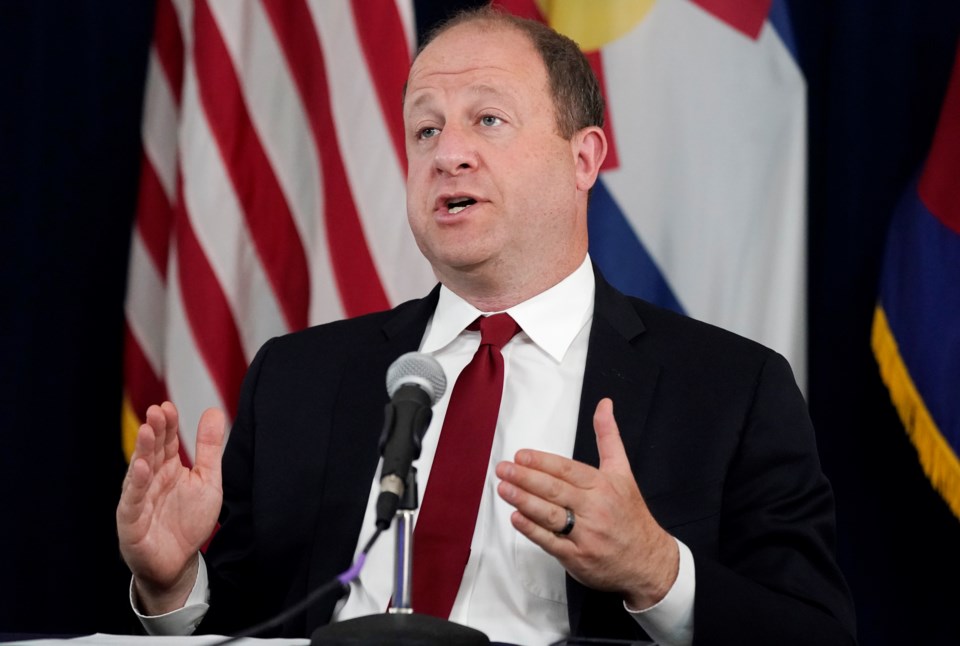Colorado Gov. Jared Polis announced the state’s steps for moving forward from the COVID-19 pandemic on Friday.
Nearly two years after the first case of COVID-19 was reported in Colorado, the Polis administration has shared a roadmap for the steps it believes necessary to maintain preparedness and agility to keep Colorado healthy.
“Fully vaccinated Coloradans can rest assured that you are reasonably safe to live your normal pre-pandemic life …” Polis said in the announcement.
According to reporting by the Colorado Department of Public Health and Environment, 81.3% of all eligible Coloradans have received at least one COVID-19 vaccine dose while more than 90% of the state’s population is estimated to have a high level of immunity against COVID.
Additionally, the Polis administration touted the state’s rapid at-home test program, free community testing sites and availability of free masks throughout the state as additional tools in preventing the spread of COVID.
Due to the high level of immunity and availability of tools to mitigate the disease, the Polis administration announced that it would be shifting away from population-level strategies to suppress transmission and moving into a more endemic-like approach to the coronavirus.
The roadmap released Friday outlines four steps the state will be taking to prepare in the event of exacerbated or new public health challenges. The first step is to establish hospital readiness standards, surge planning and normalizing COVID patient care.
Statewide, 13% of ICU beds and 11% of acute care beds in hospitals are currently available, an improvement from early January during the peak of the omicron surge.
Similarly, the Polis administration plans to ensure readiness and surge capacity in public health and emergency management fields and invest in the health care workforce to stabilize and expand that sector.
The fourth step is to engage the federal government with a national endemic response, pandemic readiness and needed reforms.
According to the announcement, Polis and state public health officials plan to urge the federal government to implement a national strategy for long-term COVID planning while minimizing impacts on social and economic wellbeing.
“Because of everyone’s sacrifices, we are where we are today — in a place where we are able to more safely enjoy the things we love,” Colorado Department of Public Health and Environment Executive Director Jill Hunsaker Ryan said in the announcement. “We want every Coloradan to have the freedom that comes with being healthy and well, and trust that we will be ready to tackle the next challenge.”
The Polis administration said it is also strongly urging the Federal Drug Administration to approve the vaccine for all ages, with children 4 and younger still ineligible for a COVID-19 vaccine.
The roadmap provides guidance for Coloradans based on their risk level and susceptibility to becoming infected or spreading COVID-19. According to the Polis administration, those fully vaccinated and up to date with all three vaccine doses should feel comfortable living life as normal.
For vaccinated Coloradans who are immunocompromised or high risk, the administration encourages taking the necessary precautions and speaking with a health care provider about a potential fourth dose of vaccine, preventive treatment options and what to do if you catch COVID.
The administration encourages people who are not fully vaccinated to get the shot, as people who are not fully vaccinated are still at risk of contracting severe disease even with the emergence of variants that cause less severe disease in fully vaccinated people.
The announcement added that the state will be ready for a surge response should COVID-19 require it and continue to advocate for increased levels of readiness in the private sector and on local, state and federal levels.



